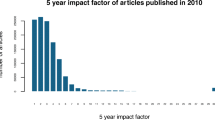Abstract
This research in progress paper introduces a novel academic abstract sentence classification system intended to improve researcher literature discovery efficiency. The system provides three key functions: 1) displays abstracts with visual identification of each sentence’s indicated literature characteristic class, 2) conversion of unstructured abstracts into structured variants and 3) categorised class sentence extraction available for export to CSV alongside literature metadata. This functionality is made possible by a web application connected to a Python instance via PHP, integration with an open access literature index via an API and a deployed academic abstract sentence classification model. The contribution of the proposed system is its ability to enhance researcher literature discovery. This paper provides context and motivation behind the development of the system, outlines its functionality and provides an outlook for future research.
Access this chapter
Tax calculation will be finalised at checkout
Purchases are for personal use only
Similar content being viewed by others
References
Bayley, L., Eldredge, J.: The structured abstract: an essential tool for researchers. Hypothesis 17(1), 11–13 (2003). PMID: 15858627
Budgen, D., Kitchenham, B.A., Charters, S.M., Turner, M., Brereton, P., Linkman, S.G.: Presenting software engineering results using structured abstracts: a randomised experiment. Empirical Softw. Eng. 13(4), 435–468 (2008). https://doi.org/10.1007/s10664-008-9075-7
Budgen, D., Burn, A.J., Kitchenham, B.: Reporting computing projects through structured abstracts: a quasi-experiment. Empirical Softw. Eng. 16(2), 244–277 (2011). https://doi.org/10.1007/s10664-010-9139-3
Cohan, A., Beltagy, I., King, D., Dalvi, B., Weld, D.S.: Pretrained language models for sequential sentence classification (2019). arXiv preprint arXiv:1909.04054
Dernoncourt, F., Lee, J.Y.: PubMed 200k RCT: a dataset for sequential sentence classification in medical abstracts (2017). arXiv preprint arXiv:1710.06071
Dernoncourt, F., Lee, J.Y., Szolovits, P.: Neural networks for joint sentence classification in medical paper abstracts (2016). arXiv preprint arXiv:1612.05251
Eldredge, J.: Evidence-based librarianship: the EBL process. Libr. Hi Tech 24(3), 341–354 (2006). https://doi.org/10.1108/07378830610692118
Gonçalves, S., Cortez, P., Moro, S.: A deep learning classifier for sentence classification in biomedical and computer science abstracts. Neural Comput. Appl. 32, 6793–6807 (2019). https://doi.org/10.1007/s00521-019-04334-2
Gusenbauer, M.: Google Scholar to overshadow them all? Comparing the sizes of 12 academic search engines and bibliographic databases. Scientometrics 118(1), 177–214 (2019). https://doi.org/10.1007/s11192-018-2958-5
Hartley, J.: Is it appropriate to use structured abstracts in social science journals? Learn. Publish. 10(4), 313–317 (1997). https://doi.org/10.1087/09531519750146789
Hartley, J., Sydes, M., Blurton, A.: Obtaining information accurately and quickly: are structured abstracts more efficient? J. Inform. Sci. 22(5), 349–356 (1996). https://doi.org/10.1177/016555159602200503
Jiang, X., Zhang, B., Ye, Y., Liu, Z.: A hierarchical model with recurrent convolutional neural networks for sequential sentence classification. In: Tang, J., Kan, M.-Y., Zhao, D., Li, S., Zan, H. (eds.) NLPCC 2019. LNCS (LNAI), vol. 11839, pp. 78–89. Springer, Cham (2019). https://doi.org/10.1007/978-3-030-32236-6_7
Nakayama, T., Hirai, N., Yamazaki, S., Naito, M.: Adoption of structured abstracts by general medical journals and format for a structured abstract. J. Med. Libr. Assoc. 93(2), 237 (2005). PMID: 15858627
Stead, C., Smith, S., Busch, P., Vatanasakdakul, S.: Emerald 110k: a multidisciplinary dataset for abstract sentence classification. Paper presented at the Proceedings of the 17th Annual Workshop of the Australasian Language Technology Association, pp. 120–125 (2019)
Yang, Z., Dai, Z., Yang, Y., Carbonell, J., Salakhutdinov, R., Le, Q.V.: XLNet: generalized autoregressive pretraining for language understanding. In: 33rd Conference on Neural Information Processing Systems, pp. 5754–5764 (2019)
Acknowledgments
The authors wish to acknowledge the Australian Government Research Training Program Scholarship which enabled this research to take place.
Author information
Authors and Affiliations
Corresponding author
Editor information
Editors and Affiliations
Rights and permissions
Copyright information
© 2020 Springer Nature Switzerland AG
About this paper
Cite this paper
Stead, C., Smith, S., Busch, P., Vatanasakdakul, S. (2020). Towards an Academic Abstract Sentence Classification System. In: Dalpiaz, F., Zdravkovic, J., Loucopoulos, P. (eds) Research Challenges in Information Science. RCIS 2020. Lecture Notes in Business Information Processing, vol 385. Springer, Cham. https://doi.org/10.1007/978-3-030-50316-1_39
Download citation
DOI: https://doi.org/10.1007/978-3-030-50316-1_39
Published:
Publisher Name: Springer, Cham
Print ISBN: 978-3-030-50315-4
Online ISBN: 978-3-030-50316-1
eBook Packages: Computer ScienceComputer Science (R0)




